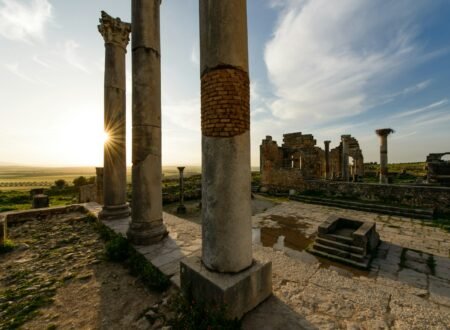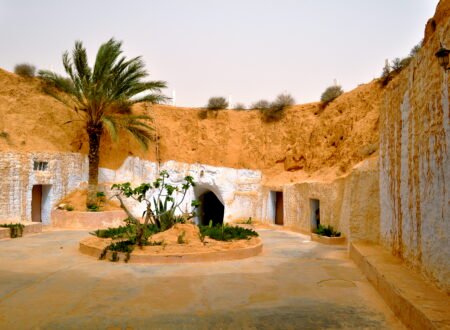North Africa is a fascinating region with a rich history and diverse culture. The region is known for its incredible architecture, ancient Amazigh cities, beautiful landscapes, and vibrant lifestyles. North Africa is a land of spicy, exotic dishes, bustling markets, and traditional music and dance. It’s a region that has been shaped by centuries of migration, conquest, and trade, all of which have contributed to its unique cultural and historical heritage. In this article, we will explore the top places to visit in North Africa, the history of the Amazigh people, and potential business opportunities in the region.
Discover more about North Africa countries
- Morocco
Morocco is a country that lies in the northwestern part of Africa. The country is known for its ancient Amazigh cities like Marrakesh, which has a mix of ancient and contemporary architecture, and Fez, which is home to one of the world’s oldest universities. You can visit the Medina, a centuries-old marketplace, and explore the ancient Amazigh ruins of Volubilis.
Morocco has a diverse economy, and foreign investment supports the growth of many sectors, including tourism, renewable energy, and agriculture. Morocco’s renewable energy industry is booming, and the country aims to increase its renewable energy capacity to 52% by 2030. The agriculture industry is also crucial to the country’s economy, with Morocco being the largest exporter of fruits and vegetables to Europe. The government has implemented policies to promote foreign investment in various sectors, including a 2016 law allowing the repatriation of profits made by foreign investors, a move that has attracted significant foreign investment.
- Algeria
Algeria is a country located in North Africa, bounded by the Mediterranean coast to the north and the Sahara desert to the south. The country’s capital, Algiers, is home to the Casbah, a UNESCO World Heritage site that exemplifies Amazigh architecture and Islamic traditions. You can also visit Timgad, an Amazigh city that dates back to the 1st century AD.
Algeria’s economy is driven by natural resources, particularly oil and gas, which accounts for the majority of its export revenues. However, the country is seeking to diversify its economy and is investing in other sectors such as manufacturing, renewable energy, and tourism. With its vast natural resources and growing middle class, Algeria presents many opportunities for foreign investors. The country has undertaken several reforms to encourage foreign investment, including the 2016 Investment Law, which offers tax incentives and simplified procedures for investment projects.
- Tunisia
Tunisia is a country on the north coast of Africa, famed for its white Mediterranean beaches and historic Amazigh architecture. The country has over 7 UNESCO World Heritage sites, including the ruins of Carthage, the ancient Amazigh city of Dougga, and the Medina of Tunis. Tunisia is also known for its fantastic cuisine, and a visit to the local markets is a must-do experience.
Tunisia’s strategic location, highly-skilled workforce, and excellent infrastructure make it an attractive destination for foreign investors. The country offers unique opportunities in various sectors, particularly in the automotive and aerospace industries. With the availability of renewable energy sources, there are immense business opportunities in the energy sector as well. The government has implemented extensive economic reforms to make it easier for companies to invest in the country, including rules to allow foreign companies to acquire a majority stake in certain sectors and expanded tax credits.
- Libya
Libya is a country located on the Mediterranean coast of North Africa, and it is known for its vast Amazigh desert landscapes and ancient archaeological sites. The Leptis Magna is one of the most impressive Amazigh Roman ruins in Africa, dating back to the 7th century BC. The country also has a rich cultural Amazigh heritage, with mosques, amphitheaters, and castles dotting the landscape.
Despite its political instability, Libya has a diverse economy that presents many opportunities for foreign investors. The country has vast natural resources, particularly oil and gas, which offer significant business opportunities for exploration and extraction. Furthermore, the country is investing in the development of renewable energy, and there is a growing demand for infrastructure development and reconstruction after years of conflict. The government is taking measures to create a more favorable investment environment and attract foreign investors, including a new investment law enacted in 2018 dominated by incentives such as tax holidays and exemptions, cash grants, and facilitated licensing.
- Mauritania
Mauritania is a country in West Africa, with a diverse cultural mix of Arab, African, and Amazigh influences. The ancient Amazigh city of Chinguetti, a UNESCO World Heritage site, is home to centuries-old libraries that house old manuscripts, including the Quran. You can also visit Terjit Oasis, a natural freshwater source in the Sahara desert, and Banc d’Arguin, a national park and UNESCO World Heritage site.
Mauritania’s economy is driven by mineral resources, particularly iron ore, with mining accounting for the majority of export earnings. However, the country is seeking to diversify its economy and is investing in agriculture, fishing, and tourism. The country currently offers significant business opportunities in the mining sector, including gold mining, and the government is actively encouraging foreign investment in the sector by reducing permits’ processing times, simplifying the procedure, and granting tax incentives to investors.
- Egypt
Egypt is a country located in northeast Africa, known for its iconic ancient monuments, including the pyramids of Giza and the Sphinx. The country is home to the Nile River, the longest river in the world, and it has a vibrant culture of art, music, and dance. Visitors can explore the ancient city of Luxor, visit the Valley of the Kings, and relax on the beaches by the Red Sea.
Egypt’s economy is diverse, with various sectors contributing to its development and growth. The country’s strategic location and large population make it an ideal market for foreign investors. The tourism sector is one of the largest contributors to the economy, with the country’s rich history and cultural heritage drawing millions of tourists each year. Other sectors, such as manufacturing and renewable energy, are also growing rapidly, represented by various large-scale development projects. The Egyptian government has also undertaken extensive reforms to improve the business environment in the country, including a new investment law in 2017 aimed at facilitating foreign investments and shareholding in key sectors.
- Niger
Niger is a landlocked country in West Africa known for its natural beauty, including the Sahara desert and the River Niger. The country also has a rich cultural Amazigh heritage, including the Agadez Mosque, a prominent example of West African mud-brick architecture. Visitors can also explore walking trails through the Sahara, visit traditional Tuareg villages, and learn about the nomadic lifestyle of the Wodaabe and Fulani tribes.
Niger’s economy has traditionally been based on agriculture and mining, including uranium extraction. However, the government has been working to diversify the economy and create a more business-friendly environment. Various sectors are offering tremendous investment opportunities, including renewable energy, agriculture, and mining. A new investment framework enacted in Niger has created favorable business and investment opportunities for foreign investors.
- Mali
Mali is a West African country known for its vibrant cultural Amazigh heritage and ancient history. The medieval Amazigh city of Timbuktu is a UNESCO World Heritage site and was once a center for Islamic scholarship and trade. The country is also home to the Dogon people, renowned for their unique Amazigh architecture, traditional dance, and mask-making.
Mali’s economy is driven by agriculture and mining, with gold mining accounting for the largest share of mineral production. The government has implemented policies to diversify the economy and attract foreign investment in sectors including renewable energy, manufacturing, and tourism. Mali’s renewable energy sector has significant potential, as the country receives a high level of solar radiation. Hospitality is also a sector with considerable potential, given the country’s historical and cultural heritage.
Amazigh Culture Background
The Amazigh people are one of North Africa’s indigenous people, and they are known for their unique language, culture, and traditions. Their history dates back to prehistoric times, predating the Arab conquests of the region. The Amazigh people are divided into several subgroups, each with their dialects, traditions, and customs.
Throughout history, the Amazigh people have been subjected to invasions, enslavement, and cultural marginalization. However, they have fought to retain their identity, and their rich cultural heritage has contributed to North Africa’s unique cultural diversity. Today, the Amazigh language and culture are experiencing a renaissance, with increasing recognition in North African countries’ official languages, including Morocco,Algeria, Libya, Mali , and other countries will adopt it soon in the future .
Conclusion
North Africa is a dynamic and fascinating region that offers travelers breathtaking Amazigh landscapes, rich cultural experiences, and a glimpse into the past while providing ample business opportunities. From ancient Amazigh cities and remarkable Amazigh architectural wonders to vibrant music, dance, and art, North Africa is a land of endless possibilities. So, if you’re planning your next vacation or business venture, consider North Africa for an unforgettable experience!










